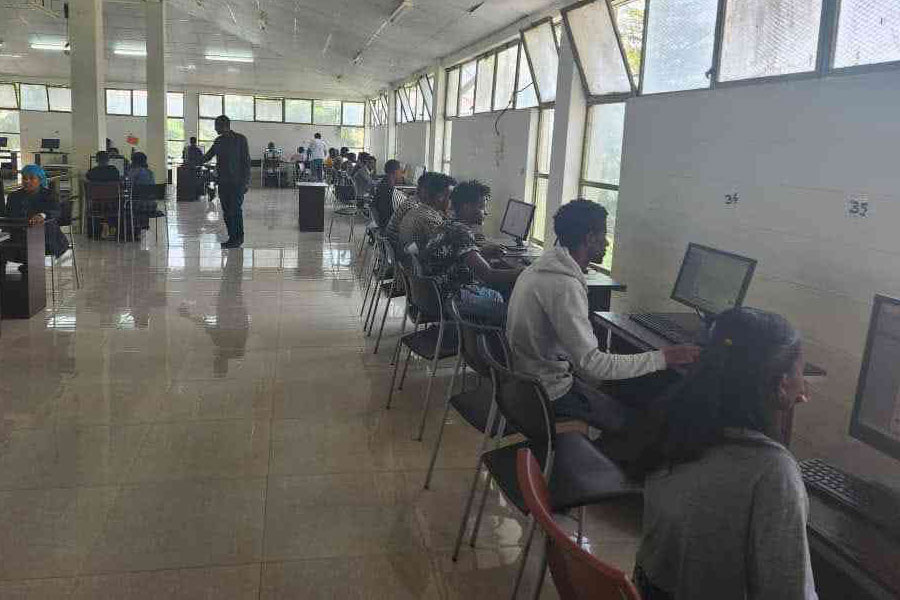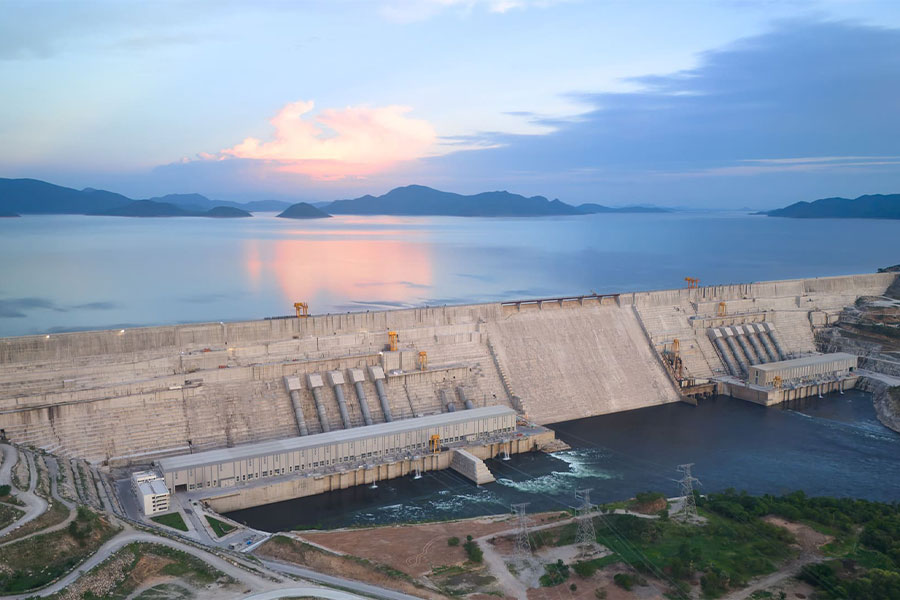
Agenda | Jul 08,2023
Mar 9 , 2024
By Nadia Calviñ , Kristalina Georgieva and Odile Renaud-Basso
In the face of the world's greatest challenges, the call for inclusion has never been more urgent. This International Women's Day, the limelight is on the indispensable role of gender equality in promoting sustainable prosperity and social cohesion, write Nadia Calviño, president of the European Investment Bank; Kristalina Georgieva, managing director of the International Monetary Fund, and Odile Renaud-Basso, president of the European Bank for Reconstruction & Development. This commentary is provided by Project Syndicate (PS).
It is hard to find a word more relevant to the world's greatest challenges and policy priorities than "inclusion," the theme of this year's International Women's Day. Inclusive, green economic growth that benefits all of society is essential to sustainable prosperity, social cohesion, competitiveness, and geopolitical stability. Supporting a "just transition" that includes all members of our societies is crucial to ensuring that climate action and digital transformation lead to a more sustainable and secure world.
Gender equality and equal rights are not just a matter of equity but also of paramount economic importance.
Research from the International Monetary Fund (IMF) suggests that narrowing the gender gap in labour markets could increase GDP in emerging markets and developing economies by almost eight percent. The gains from fully closing the gender gap would be even higher, lifting GDP in those countries by 23pc on average.
Simply put, diversity and an equal role for women in the economy, decision-making, and policy debates bring better results. Mobilising all available talent maximises productivity and competitiveness, which will be crucial for addressing climate change and promoting global prosperity. It is especially important at a time when the combined effects of the climate crisis, the COVID-19 pandemic, and Russia's invasion of Ukraine threaten to reverse many of the achievements we thought we had secured.
With four billion people around the world voting in elections this year, there is no better time to highlight the large, positive impact that gender equality has on all societies. For example, European Central Bank (ECB) research suggests that a one-percentage-point increase in female managers at a firm leads to a 0.5pc drop in carbon dioxide emissions. Similarly, the European Investment Bank (EIB) has found that firms led by women have higher environmental, social, and governance (ESG) scores. Likewise, IMF research shows that such firms are also more profitable, and that greater gender balance on bank boards is associated with greater financial stability and better performance.
These findings suggest that the greatest challenges of our time cannot be addressed without inclusion – throughout organisations and at the top.
There has been clear evidence of progress. More and more women today are starting businesses, despite having less access to financing. World Bank data for 71 countries show that, in 45 of them, women represent an increasing share of "sole owners" of companies.
How might we build on this progress?
A European Bank for Reconstruction & Development (EBRD) study demonstrates that blended-finance programs can help women entrepreneurs access more credit and expand their businesses.
Given that women make or influence 80pc of consumer-product purchase decisions, firms must take women's views and experiences into account if they want to sell more of their goods. Women also tend to be more environmentally conscious, which helps to explain the growing customer demand for green financial services. Globally, one in three consumers reports that she would pay a premium of as much as 25pc for sustainable financial services.
This points to another reason that inclusion is good for business: research shows that more women on corporate boards correlate positively with the disclosure of CO2 emissions. Women now control 40pc of global wealth and want to invest in a sustainable future. Some 74pc of women report being interested in increasing the share of ESG investments in their current investment portfolios, compared to 53pc of men.
Firms that fail to make room for women overlook an opportunity to outperform their competitors.
Over many centuries, women have developed strategies for dealing with unequal situations, which has made us especially valuable to organisations that want to change the world. Owing to our historical experience of exclusion and inequality, we are more likely to recognise the need for change and consider the impact of a company's operations or policy decisions on others. Countries with higher female representation in parliament are more likely to ratify environmental treaties and adopt policies that address climate change.
Women's talent is a driving force behind economic progress and an essential part of the solution to climate change. Women already lead some of the world's most influential financial bodies and play a growing role in the political arena. Now women must lead the shift to a more inclusive and sustainable growth model. We have a unique opportunity to advance inclusion, inspire similar commitments from others, and shape the future for the better.
PUBLISHED ON
Mar 09,2024 [ VOL
24 , NO
1245]

Agenda | Jul 08,2023

Covid-19 | Jun 13,2020

Viewpoints | Mar 20,2021

My Opinion | Jun 25,2022

Commentaries | Oct 26,2024

Radar | Apr 13,2019

Viewpoints | Sep 20,2025

Fortune News | Oct 02,2021

Viewpoints | Oct 04,2025

View From Arada | Sep 07,2019

Photo Gallery | 176909 Views | May 06,2019

Photo Gallery | 167122 Views | Apr 26,2019

Photo Gallery | 157690 Views | Oct 06,2021

My Opinion | 136936 Views | Aug 14,2021

Dec 22 , 2024 . By TIZITA SHEWAFERAW
Charged with transforming colossal state-owned enterprises into modern and competitiv...

Aug 18 , 2024 . By AKSAH ITALO
Although predictable Yonas Zerihun's job in the ride-hailing service is not immune to...

Jul 28 , 2024 . By TIZITA SHEWAFERAW
Unhabitual, perhaps too many, Samuel Gebreyohannes, 38, used to occasionally enjoy a couple of beers at breakfast. However, he recently swit...

Jul 13 , 2024 . By AKSAH ITALO
Investors who rely on tractors, trucks, and field vehicles for commuting, transporting commodities, and f...

Oct 18 , 2025
The political establishment, notably the ruling party and its top brass, has become p...

Oct 11 , 2025
Ladislas Farago, a roving Associated Press (AP) correspondent, arrived in Ethiopia in...

Oct 4 , 2025
Eyob Tekalegn (PhD) had been in the Governor's chair for only weeks when, on Septembe...

Sep 27 , 2025
Four years into an experiment with “shock therapy” in education, the national moo...

Oct 18 , 2025 . By NAHOM AYELE
In a sweeping reform that upends nearly a decade of uniform health insurance contribu...

A bill that could transform the nutritional state sits in a limbo, even as the countr...

Oct 18 , 2025 . By SURAFEL MULUGETA
A long-planned directive to curb carbon emissions from fossil-fuel-powered vehicles h...

Oct 18 , 2025 . By BEZAWIT HULUAGER
Transaction advisors working with companies that hold over a quarter of a billion Bir...